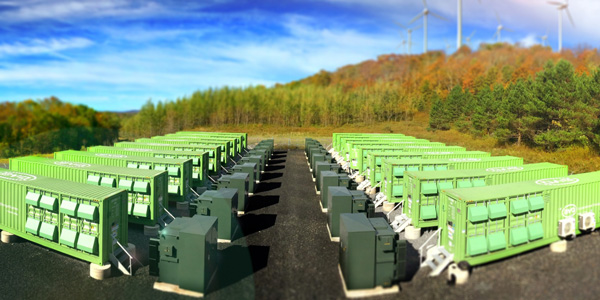By Amanda Durish Cook
While stakeholders are still deciding what topics MISO’s Energy Storage Task Force must take on to prepare the RTO for integrating a revolutionary technology, they must also recognize which are off-limits in order to avoid intruding on state jurisdiction.
The new task force has been charged with creating a list of detailed storage issues to be assigned to other MISO stakeholder groups. The RTO in August already floated its suggestions on how to dole out the work. (See Progress Builds for MISO Energy Storage Effort.)
Invenergy’s John Fernandes, the task force’s chair, doesn’t want his group to simply provide MISO’s Steering Committee “a laundry list of issues and wish them luck.” That committee is responsible for assigning specific storage-related issues to other stakeholder committees.
“I don’t want to leave things open-ended,” Fernandes said during the group’s first conference call Oct. 16.
He said the task force should identify in what ways existing market rules might impede participation by storage resources, while also providing the committee with a recommended course of action. That would include helping to determine how to assign issues across committees and identifying which parts of the Tariff require revision.
Clarity from Complexity
The task force’s draft charter stipulates that the group consult storage experts to sort out issues that arise from market integration “that may introduce complexity to the footprint.”
MISO liaison Joe Gardner said the RTO’s goal for the task force is to identify possible near- and long-term changes and additions to market rules.
“Getting as much clarity and consensus now will behoove us in the long run … for planning, reliability and markets,” Gardner said. MISO has set aside funding to conduct storage-specific planning studies, he added.
However, stakeholders attending the task force meetings are at odds over the specifics of discussions.
Minnesota Public Utilities Commission staff member Hwikwon Ham cautioned that the task force should not interfere with state jurisdiction, saying stakeholders can explore whether MISO should create potential market products if states decide to allow aggregators to offer storage, but they should steer clear of deciding rules for interconnection.
“We have to have a discussion about what we can do within the law,” Ham said.
“I have no interest in treading on state jurisdiction,” Fernandes said, adding that the group will also steer clear of retail tariffs and distribution rules. “But the industry is going to force our hand,” he warned, predicting a future influx of storage participation that will require market rules.
Generation or Transmission?
Indianapolis Power and Light’s Lin Franks said the task force should be clear that it will not consider storage as it pertains to transmission planning, instead focusing on how to get it unfettered access to the wholesale market.
Fernandes responded that the group should not limit its consideration of possible storage benefits. “Storage as transmission is a very viable business model,” he said.
“Storage is not wires. It’s a substitute,” Franks countered.
Fernandes said storage-owning stakeholders have “been having the discussion with MISO on storage acting as wires” and the group should consider all storage, whether it functions as a generation or transmission asset.
“Storage as a transmission asset should be on the table … and very much front and center in MISO because it’s envisioned by FERC,” American Transmission Co.’s Bob McKee said. “FERC has already said storage should be recognized as transmission.”
MISO stakeholders also debated whether the group should only tackle grid-scale storage issues, leaving distributed energy resources unaffected. Fernandes said he had concerns with ignoring DER “considering it’s a grid-scale storage developer that signs my checks.”
The task force will meet again in late November to finalize a charter and agree on topics, while most of its substantive work will occur next year. Stakeholders will weigh in on the group’s draft charter through Nov. 3. The task force is slated to meet through the end of 2018, when stakeholders will determine whether the group will be retired or extended.





